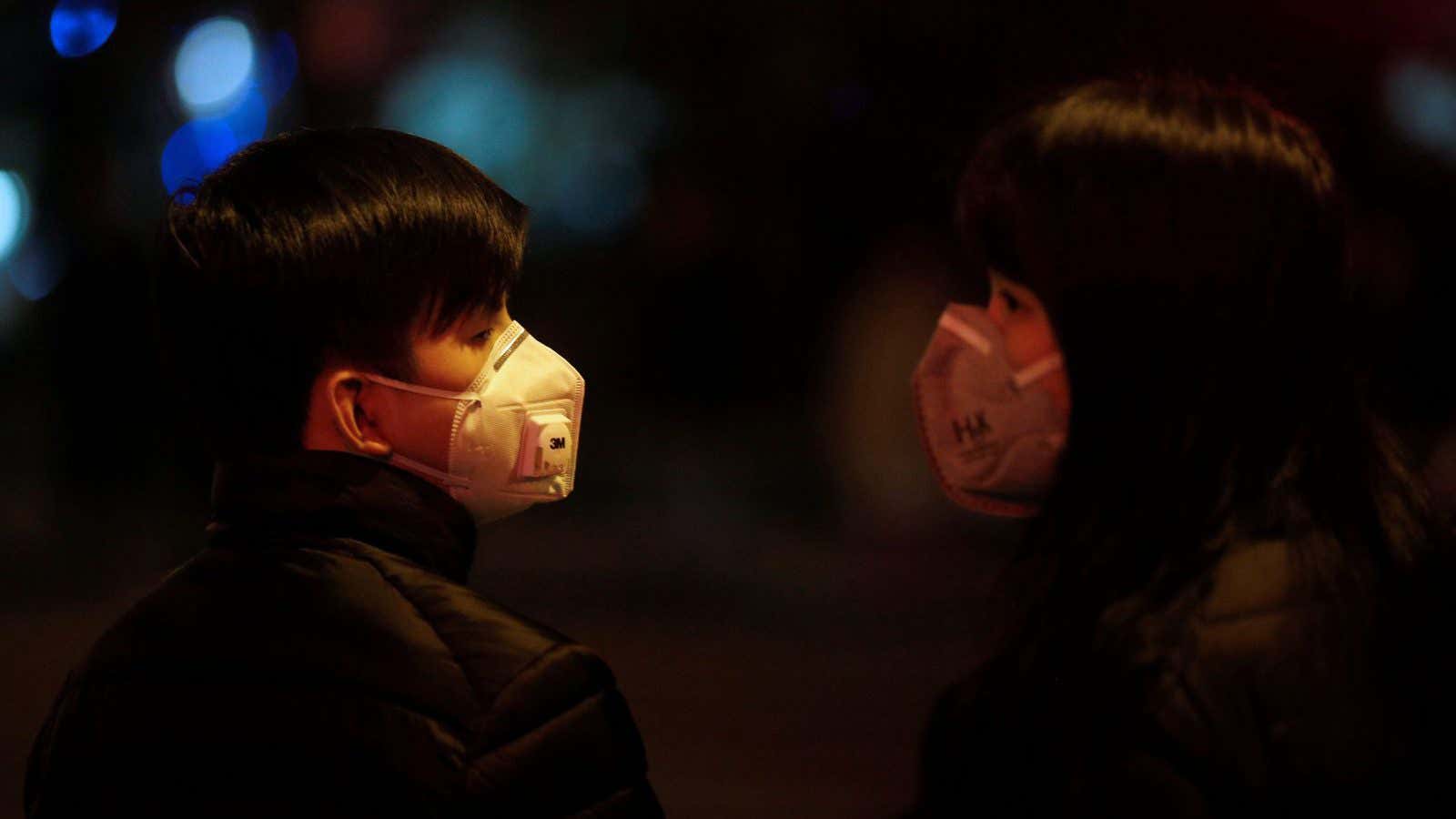As societies become wealthier, they don’t necessarily become happier. It’s called the Easterlin paradox, named for happiness economist Richard Easterlin. He observed in 2012 that people in China appeared to be experiencing the paradox. They had reported more happiness overall in 1990, before the country’s economic transition, than they did two decades later, perhaps due to a growing inequality in happiness itself—in 2010, a far smaller share of people in the lowest income group reported high life satisfaction than previously.
Easterlin’s theories have been much debated (and according to some, debunked) over the decades since he first published his findings. But other studies and surveys that look at “in the moment,” or hedonic, happiness in China have also registered a decline.
Now, a new study that will appear in the Journal of Environmental Economics and Management suggests a very in-the-moment reason for fluctuations in China’s in-the-moment happiness levels: Air pollution.
Researchers from Beijing’s Peking University and Yale University in the US extracted the the self-reported levels of long-term and moment-to-moment happiness in the China Family Panel Studies, a nationally representative survey that includes geographical information of the respondents and dates they were surveyed. They then matched these mental health measures with air pollution indicators for the areas where people were surveyed.
Because the surveys also ask about income and marital status, which are associated with both long- and short-term happiness, the researchers could control for the effects of those factors, as well as for weather conditions such as sunshine, said study co-author Xiaobo Zhang, an economics professor at Peking University’s National School of Development.
According to the research, significant changes in air pollution were correlated with changes in hedonic happiness levels that were, on the upside, comparable to about 10% of the happiness from a “mid-size lottery win in Britain” or, on the downside, about 10% of the effects of a major life event, such as a divorce. The study theorized that there didn’t seem to be an effect on long-term satisfaction, perhaps because of a tendency of human beings to adapt to negative circumstances over time.
While the findings may not seem startling—the presence of smog is noticeable and likely to make people feel less than joyous, even when they don’t experience any immediate health effects—Zhang said that it was important to try to tease out and quantify the reasons for China’s declining self-reported happiness.
